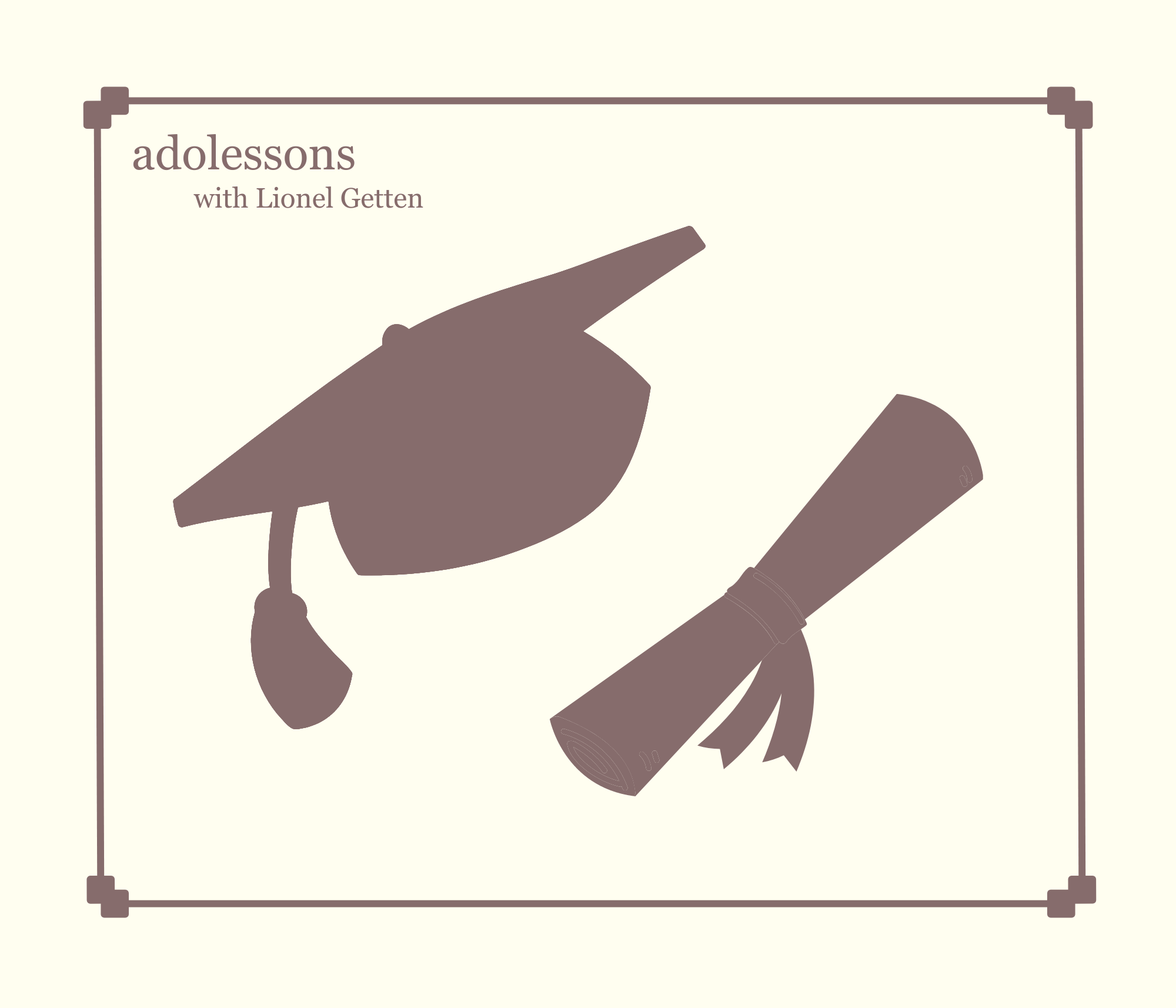College: Is it Right for You?
By Lionel Getten
Anticipation settles as you wait for the renowned cap throw while “Pomp and Circumstance” floods the ears of the audience; graduation is only minutes away! Wide-eyed and bushy-tailed, you recount the past four years and remind yourself that they were only preparing you for what is to come. However, what they did not prepare you for was the overwhelming pressure to make the “right” decision after high school.
Normalized in American culture is the not-so-subtle demand for an immediate course of action following high school. While we have parents to partially blame for that, judgment among peers has sustained this pressure by disguising itself as the “college experience.”
“At least we’ll be having fun. Because that’s what fucking college is all about” said Bela in the HBO series “The Sex Lives of College Girls.” With this show being a prime example, college is typically well-perceived in media, resulting in its glamourization amongst youth culture. Today, I am here to offer real perspectives on different paths graduates have taken, and discuss their satisfaction and opinions on the “college experience.”
Jadyn Giles is a journalism student at California State University, Long Beach (CSULB), and is actively involved as a campus event planner. A survey conducted by Inside Higher Ed revealed that involvement in campus activities and student satisfaction levels are positively linked, even going as far as to say that well-being is enhanced as well. So maybe movies like “Pitch Perfect” were accurate in depicting college students being more likely to succeed when having a sense of belonging.
“I love the people I’ve met this year, the campus is beautiful…” Giles shared. “I’d say I’m enjoying CSULB for the most part.”
However, while Giles is enjoying her experience, the same could not be said about her tuition increase. In September of 2023, it was announced that all students attending California State University (CSU) would face a 6% raise in tuition for the next five years. As advocates of affordable learning, students like Giles have come to question the hypocrisy of said claims made by CSU after enacting this increase.
“I don’t understand it, our tuition will go up yet the way students are treated will never improve.” Giles expressed. “There’s already a fee for everything you could possibly imagine [such as] registration fees, housing application fees and even things as little as printing papers for classes.”
With mixed emotions about CSULB at the moment, Giles has concluded that the college experience has been heavily romanticized, emphasizing that while at times it may be fun, it is still school nonetheless. “I think the path I've taken has already resulted in so much growth because of the obstacles I have faced so far,” said Giles. “Going straight into a university and being off on my own has benefited me, I've figured myself out a lot more, and figured out what it takes for me to be happy.”
Next up, Ty Waymire is an English student at Chaffey College and had planned on attending community college ever since his dual enrollment in high school. Even with his plan set in motion, Waymire felt external pressures from both his peers and the media to go straight to a four-year university. Nevertheless, he overcame coercion by unveiling that the promotion of these universities was only hiding people’s true opinions of community colleges.
“I think community college is heavily criticized in general because people think the education level is lower in some sense.” Waymire voiced. “I think it’s because people think community college isn’t real education and that a university or [a] 4 year is the only real way to learn.”
This judgment has come to raise a question of mine: Do community colleges factor into the “college experience?” As the media glamorizes four-year universities, it somehow seems to simultaneously discredit community colleges by either neglecting to represent them or making jokes about them.
For instance, in the pilot episode of the series “Community,” the main character states, “If I wanted to learn something, I wouldn’t have come to community college.” Sure, there is nothing wrong with a good laugh but with such a lack of representation, depictions like this have become detrimental to these schools’ reputations.
An article by GRC Insights discusses the societal stigma behind attending community colleges, revealing that due to their high acceptance rate, they are perceived as less prestigious than four-year universities. In order to tackle this problem, author Shana Soyfer urges that we remove this stigma sooner rather than later. “This can only end by promoting it as a more viable option in high school and making it more accessible for students to transfer once they have completed community college.” Soyfer advises.
Regardless of the negative stigmas, Waymire has enjoyed his time at Chaffey thus far and appreciates its flexibility with his time. “I think a lot of the teachers are more caring than I would assume they would be,” Waymire mentioned. “Community college was the best for me because I really wasn’t sure what I wanted to do and it gave me more time to think of all my opportunities.”
Lastly, Danielle Fort is a 21-year-old aspiring hairstylist, currently working a part-time job. Having briefly attended college, she chose not to continue her education because she was not set on a career path quite yet. Although confident in her decision, she felt unprovoked judgment from her peers.
“I feel like there’s a stigma about individuals that choose to take some time before enrolling or choose a route aside from college all together but there shouldn’t be,” Fort expressed. “I’ve always had it in my mind that if you don’t have some sort of idea or plan to navigate the college life it could be a waste of time or money to just enroll because that's what society says you should do after high school.”
The concept of taking some years before college to figure things out is undeservingly frowned upon by society, with thoughts that these gaps would prohibit individuals from returning to school, and are “lazy” for not being immediately pursuant. A survey conducted by The Gap Year Associationrevealed that this stereotype could not be more wrong. “90% of those who took a gap were back in school within a year and also more likely to graduate on time with a higher grade point average,” as depicted in the survey.
And even for the 10% who chose not to return to school, what is so wrong with their decision? Especially with education becoming less affordable by the day, not everyone has the means to pay these high tuition fees, or the desire to face student loans. “I feel like everyone has their own personal goals and aspirations and with social media and today's advanced technology, having a degree isn’t the only way possible to become successful,” Fort said
With hopes of turning her dreams into reality, Fort does plan on returning to college to eventually become a hairstylist, or whatever else she sets her mind to in the future. Regardless, whatever she decides will be as a result of what she wants to do with her life, rather than conforming to society.
With that comes the message I have attempted to portray, which is to do whatever your heart desires following high school, even if it is to seek out the proverbial “college experience.” Do not let the fear of outside judgment shape your future, do what is right for you and you alone. All in all, becoming more accepting of paths different from your own, and only then can we debunk the false narrative of a “right” decision after high school.

